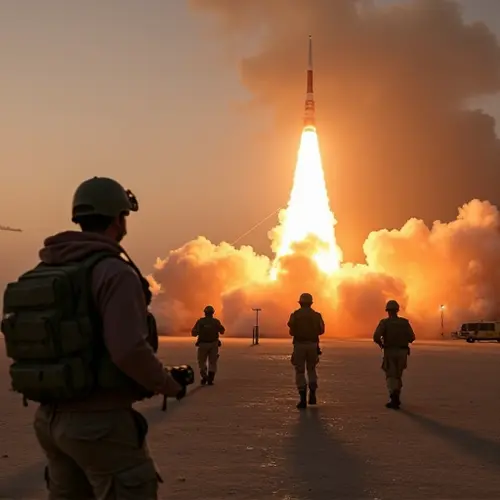
Iran launched hundreds of drones and missiles in retaliation for a large-scale Israeli attack on its territory. Iranian leaders warned that Israel would "pay a high price" for the strikes. While the counterattack was extensive, many projectiles were intercepted by Israel's Iron Dome defense system, aided by the U.S. and Jordan. Those that reached their targets caused significant damage, resulting in multiple casualties and dozens of injuries.
"Iran still has much more in its arsenal," said Abdou Bouzerda, a journalist and Middle East expert. He believes Iran's capabilities are underestimated. "By overwhelming the Iron Dome with sheer numbers, they increase the chances of some missiles slipping through."
Belgian journalist Jens Franssen, reporting from Tel Aviv, doubts Israel's air defense will be caught off guard. "It will be very difficult for Iran to inflict damage from the air," he said. "They may shift focus to hybrid warfare, targeting Israeli interests abroad."
Bouzerda highlighted Iran's possession of hypersonic missiles, capable of reaching speeds 15 times the speed of sound, which remain unused. "Their deployment could trigger a major escalation," he warned. Iran also has regional allies, such as Hezbollah and Houthi rebels, who could engage in sabotage or smaller-scale attacks.
Another potential leverage point is the Strait of Hormuz, a critical oil transit route. "Closing it would exert immense pressure on the international community," Bouzerda noted.
Israel, meanwhile, retains significant retaliatory options, including the use of "bunker busters" to target deep underground facilities. However, such weapons would likely require U.S. approval.
Despite the tensions, residents of Tel Aviv remain confident in their defenses. "They trust the air defense system and believe these actions will ensure long-term security," Franssen observed.

 Nederlands
Nederlands
 English
English
 Deutsch
Deutsch
 Français
Français
 Español
Español
 Português
Português